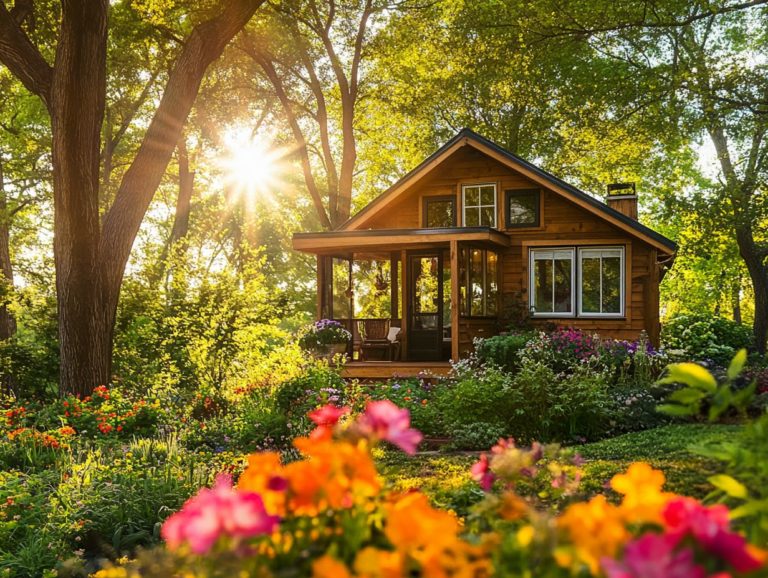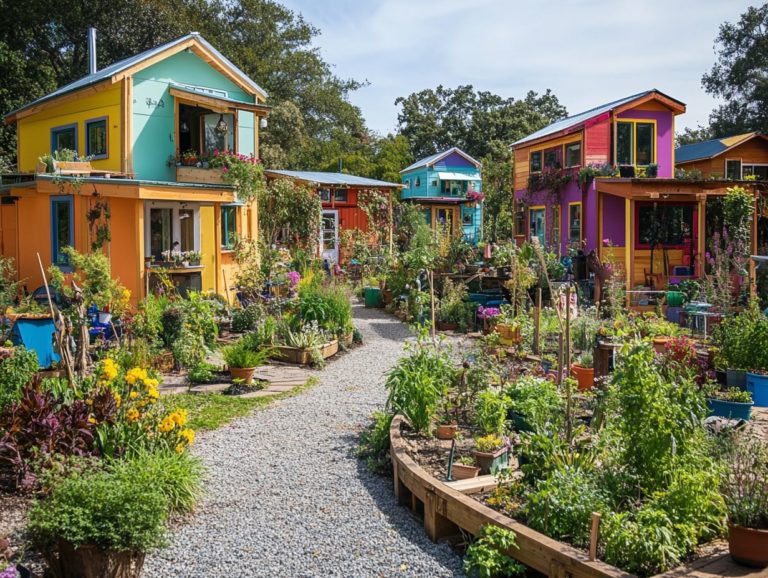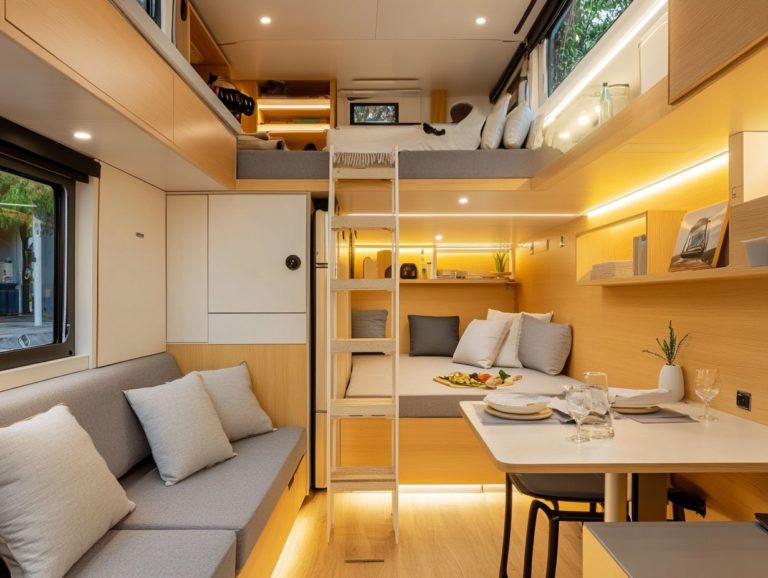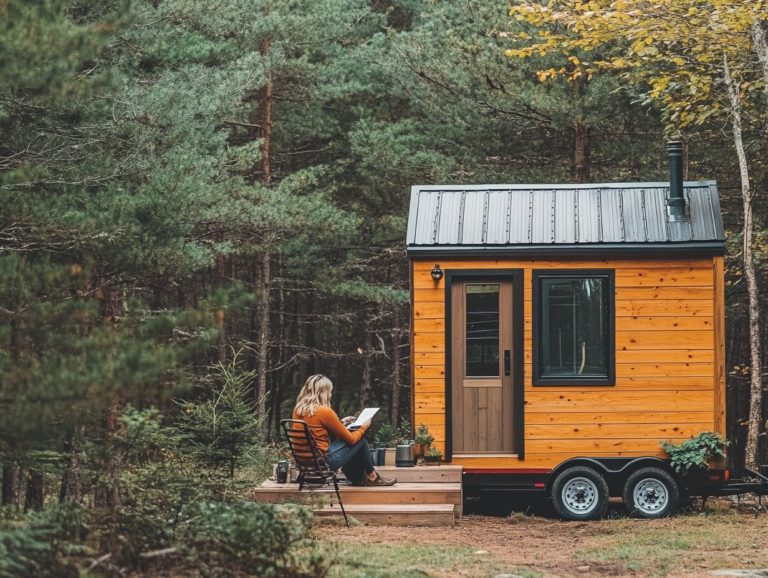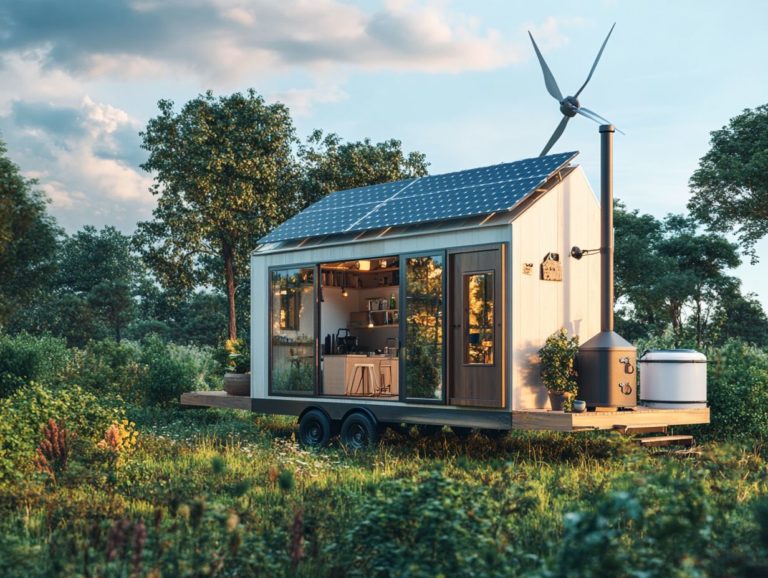Do I Need a Special Permit for a Tiny House?
Tiny houses likely capture your imagination. They present a harmonious blend of sustainability, minimalism, and affordability.
What defines a tiny house? It’s crucial to explore the myriad benefits of owning one. These range from significant financial savings to transformative lifestyle shifts.
Understanding the required permits and regulations can feel overwhelming, but you don t have to tackle it alone.
This article is designed to guide you through everything you need to know about tiny houses, including the benefits, legal requirements, practical challenges, and effective solutions.
Prepare to explore the captivating world of tiny living! You ll discover how downsizing can lead to a richer, more fulfilling life.
Contents [hide]
- Key Takeaways:
- Understanding Tiny Houses
- Benefits of Owning a Tiny House
- Permits and Regulations for Tiny Houses
- How to Obtain Permits for a Tiny House
- Challenges and Considerations
- Frequently Asked Questions
- Do I Need a Special Permit for a Tiny House?
- What factors determine if I need a special permit for my tiny house?
- Do I need a special permit if I plan to live in my tiny house full-time?
- Can I avoid getting a special permit by building my tiny house on wheels?
- What happens if I don’t get a special permit for my tiny house?
- Can I apply for a special permit for my tiny house retroactively?
Key Takeaways:
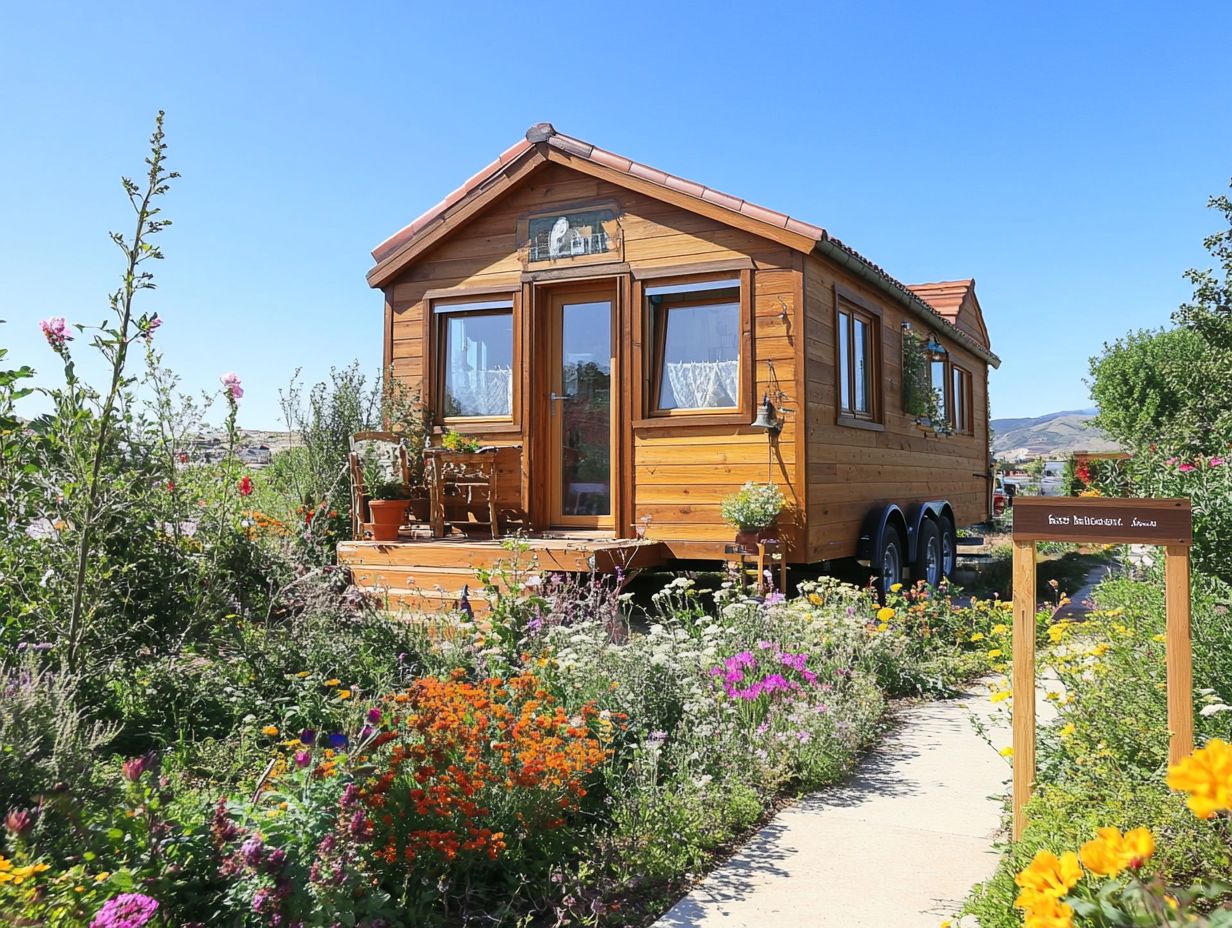
- Owning a tiny house can bring financial and lifestyle benefits, but it’s important to understand the necessary permits and regulations before building or living in one.
- Depending on local laws, you may need a special permit for your tiny house. Types of permits and regulations can vary, so research and consult with authorities beforehand.
- Obtaining a permit for a tiny house may require a step-by-step process and potential challenges. Consider potential obstacles and solutions, and seek recommendations from experienced tiny house owners.
Understanding Tiny Houses
Understanding tiny houses requires you to appreciate their growing significance in today s housing landscape, particularly in Georgia, where the enthusiasm for sustainable living and the tiny house movement is gaining momentum.
These compact residences, often under 500 square feet, offer a compelling solution to the challenges of affordable housing. They enable individuals to downsize without compromising on comfort or style.
What is a Tiny House?
A tiny house is generally considered to be a small dwelling, often under 400 square feet, crafted for efficient living and minimalism. It can serve as a permanent residence, a mobile home, or even a guest house.
This versatile concept caters to various lifestyles, from those yearning for the freedom of mobility to individuals drawn to more traditional living arrangements.
Mobile homes provide the flexibility to relocate effortlessly while still reaping the rewards of compact living. Conversely, transitional structures serve as perfect solutions for temporary housing, often becoming essential during significant life changes such as retirement or relocation.
Each type is designed with meticulous attention to detail, maximizing space through multifunctional furniture and smart storage solutions. This thoughtful approach creates an inviting and efficient environment that fosters simplicity and sustainability.
Benefits of Owning a Tiny House
Owning a tiny house offers an array of benefits that align with your financial and lifestyle aspirations, especially if you’re seeking sustainable living solutions and affordable housing options in today s economy.
Financial and Lifestyle Advantages
The financial and lifestyle benefits of owning a tiny home are compelling. You enjoy lower property taxes and minimal utility connections.
Many tiny home residents report significant savings on monthly expenses. Insurance and maintenance costs are often drastically reduced compared to traditional homes, allowing for a more manageable financial landscape.
By choosing solar panels and rainwater collection systems, you can further diminish your reliance on municipal services, leading to substantial savings over time.
Living in a compact dwelling often grants you more time and resources to devote to hobbies or community projects, ultimately enhancing your overall quality of life.
In tiny home communities, there’s a palpable sense of camaraderie and shared purpose. This creates a supportive environment where sustainable living transforms from a personal choice into a collective movement.
Permits and Regulations for Tiny Houses
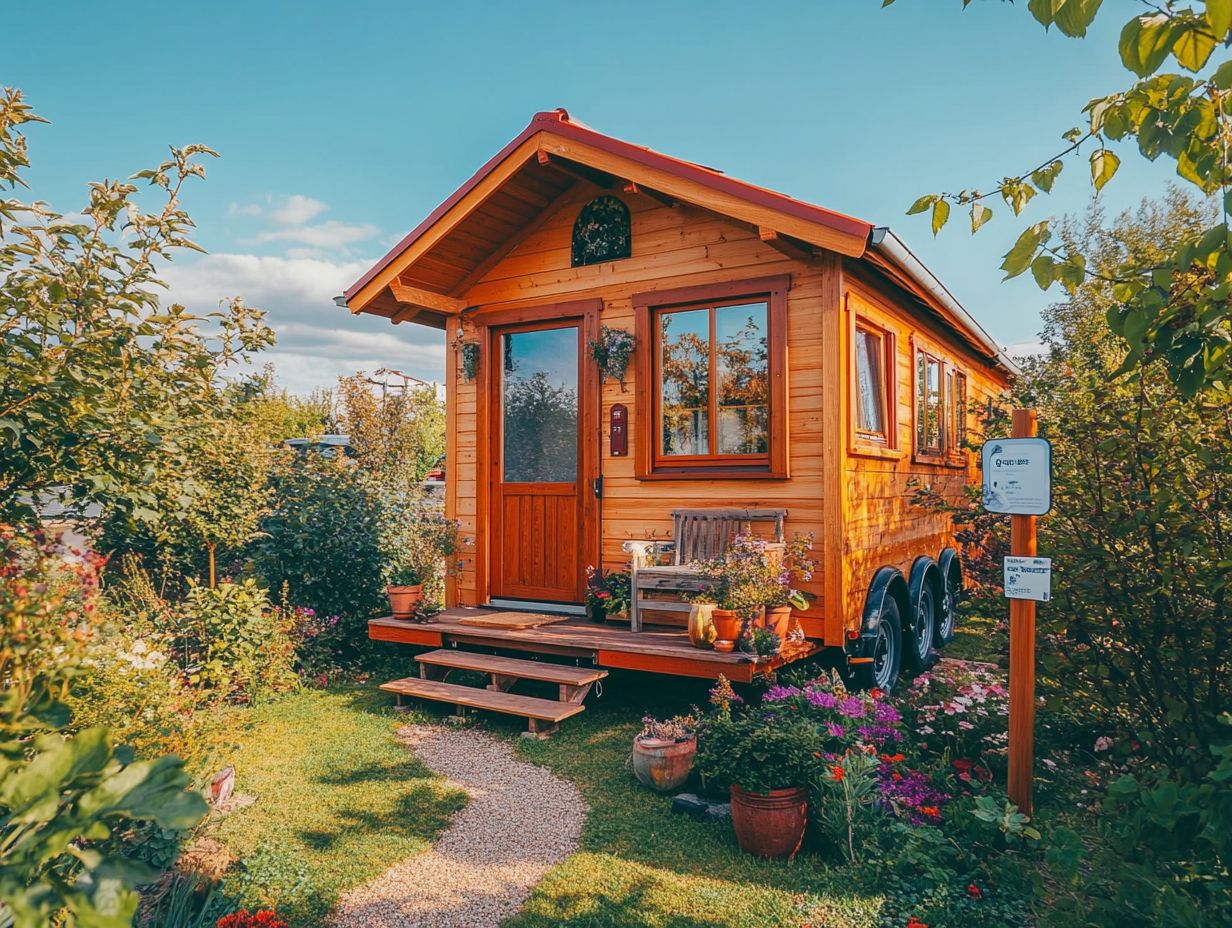
Permits and regulations for tiny houses can vary greatly depending on where you are, especially across different counties in Georgia. Local authorities impose specific zoning regulations (rules that determine how land can be used) and building codes that tiny house builders must follow.
It’s essential to understand these nuances to ensure following the rules and avoid any potential setbacks in your building journey.
Do You Need a Permit?
Determining whether you need a permit for your tiny home hinges on several factors, including local zoning laws, the intended use of the structure, and whether it’s classified as a mobile home or a permanent residence.
Many tiny home enthusiasts find themselves navigating construction guidelines from the local planning department. Dive into the specific regulations! They can vary widely from one locality to another and influence everything from building codes to land use designations.
For instance, in some areas, tiny homes on wheels may be permitted without a formal permit, while in others, they might need to be registered as a permanent dwelling.
You may also face issues concerning setbacks (how far your home must be from property lines), health and safety standards, or securing the necessary utilities. Additionally, the type of foundation required, whether on skids or a flat base, can add layers of complexity to your tiny living journey. For more information on these aspects, check out our guide to tiny house occupancy permits.
Types of Permits and Regulations
Different types of permits and regulations apply to tiny houses, including a combination of construction permits, building codes, and specific requirements for sanitation facilities and plumbing standards.
These rules vary by location, as local governments often establish unique policies to accommodate the growing popularity of compact living spaces.
For example, some jurisdictions might mandate conventional septic systems, while others could allow composting toilets or graywater recycling systems.
As a tiny homeowner, you’ll need to navigate utility connection permits, ensuring compliance with municipal standards for electricity and water access. Building standards, covering aspects like structural integrity and fire safety, can also significantly influence your design and layout.
Understanding these diverse regulations not only helps ensure you follow the rules but also promotes sustainable living.
How to Obtain Permits for a Tiny House
Obtaining permits for a tiny house involves navigating a series of essential steps that require you to engage with local authorities and adhere to the construction guidelines established by the planning department. This includes understanding your parking needs for your tiny home.
Step-by-Step Guide
The step-by-step guide for obtaining tiny home permits typically starts with understanding the application process and engaging with local authorities to comply with community regulations and standards.
This initial outreach is vital, as it allows you to grasp specific zoning laws, building codes, and any restrictions that might impact your project.
By connecting with the local planning department, you can gather essential information about the necessary permits, associated fees, and the typical timeline for approval.
Exploring community resources, such as workshops or online forums, can also provide invaluable insights from seasoned tiny home builders who have successfully navigated the process. Remember, maintaining open communication with local officials is crucial for ensuring a smooth application journey.
Challenges and Considerations
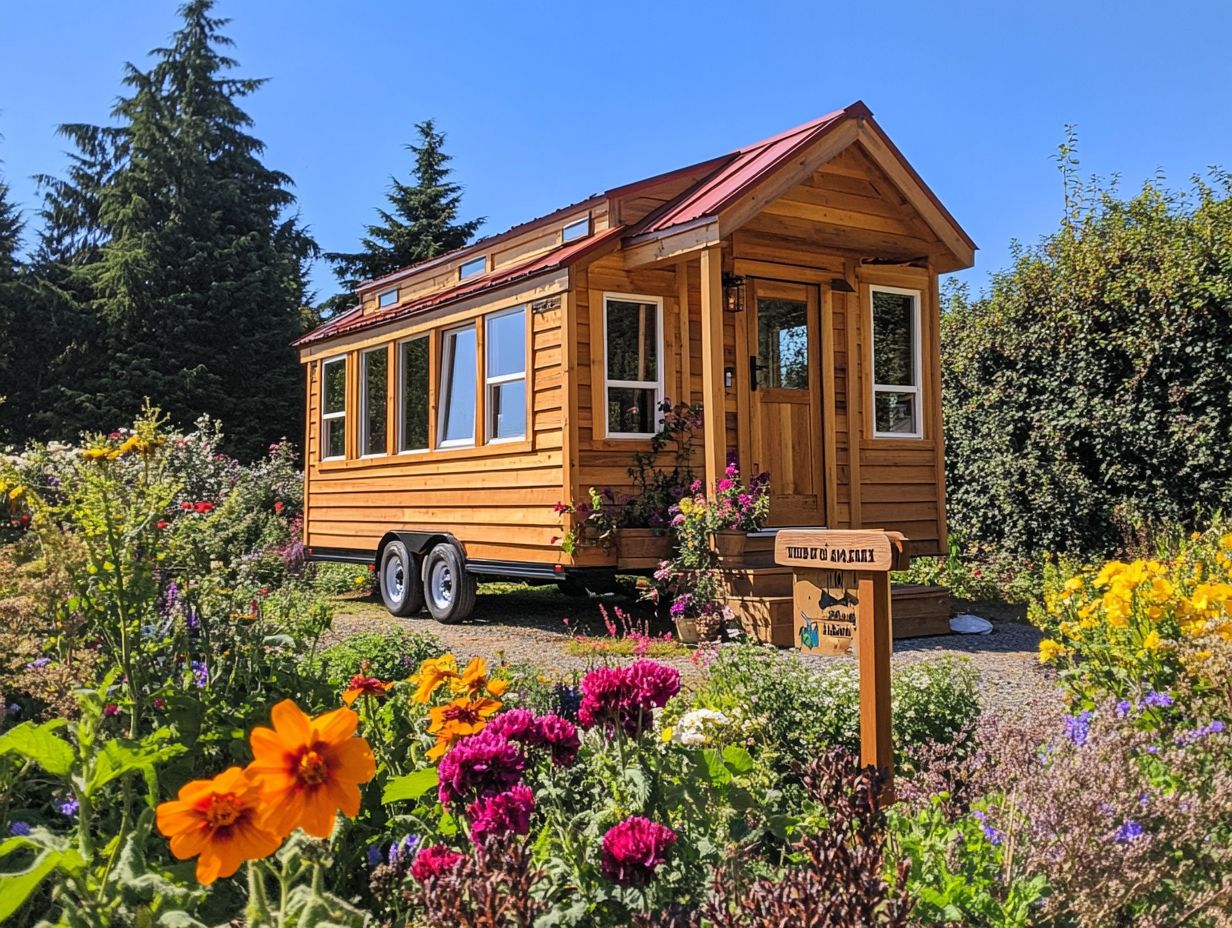
The tiny house movement offers thrilling challenges that can lead to a remarkable lifestyle! Among these are legal issues tied to zoning regulations, property usage, and seamlessly integrating tiny homes into existing community living arrangements.
Navigating these complexities is essential for realizing the full potential of this innovative lifestyle choice. Act now! Understanding these challenges can save you time and money down the road.
Start your tiny house journey today by checking local regulations!
Potential Obstacles and Solutions
Potential obstacles in the tiny house movement often arise from legal issues, local land use rules, and building rules. However, viable solutions are available for you to explore as a tiny house builder or owner.
As you embark on your tiny house journey, you might encounter unexpected hurdles such as restrictions on land use, building codes favoring traditional housing designs, and the scarcity of permits for alternative structures. Financial constraints can also pose significant barriers, causing hesitation in pursuing your dream.
To navigate these challenges, consider forming community coalitions to advocate for changes in local legislation. Explore creative financing options like tiny house loans or crowdfunding campaigns, which can be particularly relevant in the context of community living.
Engage with organizations that specialize in tiny home education. They can provide invaluable resources to help you navigate through the intricate landscape of regulations, including understanding the permits needed for tiny house construction. Doing so will ultimately foster a more supportive environment for your pursuit of this sustainable lifestyle.
Final Thoughts and Recommendations
As you consider your options, remember the various aspects of tiny home advantages and the importance of understanding local regulations. This is your chance to ensure a smooth transition into this exciting lifestyle.
The tiny house movement presents a remarkable opportunity for you to embrace sustainable living and connect with your community. The advantages can truly elevate your quality of life.
By adopting this lifestyle, you not only diminish your ecological footprint but also cultivate deeper connections with your neighbors and fellow enthusiasts. The perks go beyond financial savings; they usher in a profound sense of freedom and simplicity that many find incredibly liberating.
If you’re considering this transition, it’s vital to assess your needs, financial circumstances, and available community options. Make sure everything aligns with your values. With thoughtful planning and an open mind, stepping into a tiny house lifestyle could lead you toward a more fulfilling and intentional existence. Be sure to check out navigating local ordinances for tiny houses as you start researching your options today!
Frequently Asked Questions
Do I Need a Special Permit for a Tiny House?
It depends on where you plan to build your tiny house. Different cities and states have different regulations and requirements for tiny houses. It s essential to research and check with your local government to see if a special permit is needed.
What factors determine if I need a special permit for my tiny house?
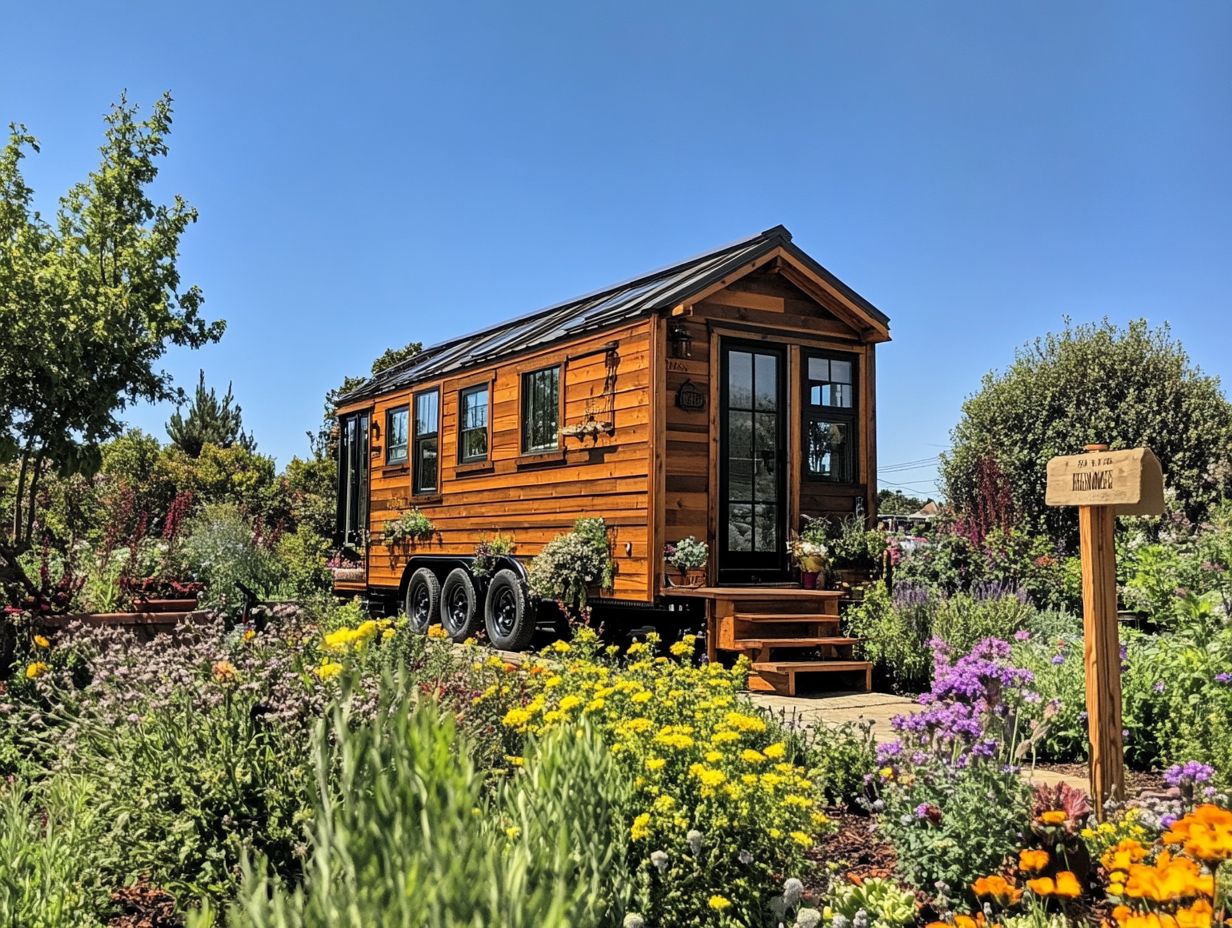
The main factors that determine if you need a special permit for your tiny house include the size of the house, its placement on the property, and whether it is on wheels or a permanent structure. Other factors may include local land use rules, building codes, and safety regulations.
Do I need a special permit if I plan to live in my tiny house full-time?
In most cases, yes. Many cities and states have restrictions on living in tiny houses full-time and may require you to obtain a special permit for long-term occupancy. It s important to check with your local government to ensure you comply with all regulations.
Can I avoid getting a special permit by building my tiny house on wheels?
Not necessarily. While building on wheels may make it easier to classify your tiny house as an RV, it does not exempt you from needing a special permit in certain areas. Again, it s important to research and check with your local government for specific regulations.
What happens if I don’t get a special permit for my tiny house?
If you fail to obtain a required special permit for your tiny house, you may face fines and penalties from your local government. In some cases, you may be required to remove or relocate your tiny house. It s always best to follow regulations and obtain the necessary permits to avoid any potential issues.
Can I apply for a special permit for my tiny house retroactively?
In some cases, yes. If you have already built your tiny house and later realize that you need a special permit, you may be able to apply for one retroactively. However, this process can be more complicated and may require additional fees. It s always best to research and obtain the necessary permits before starting construction on your tiny house.

